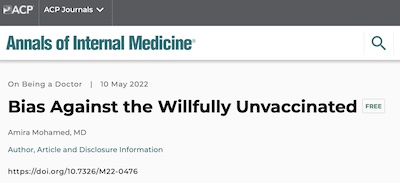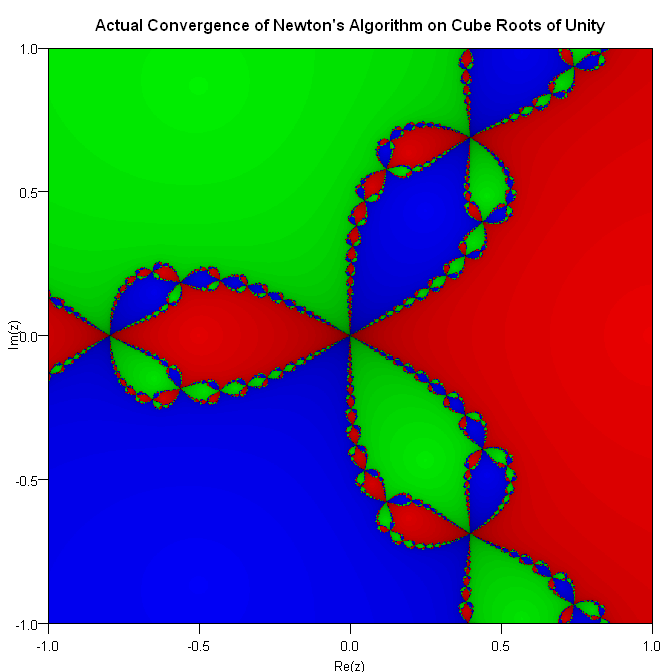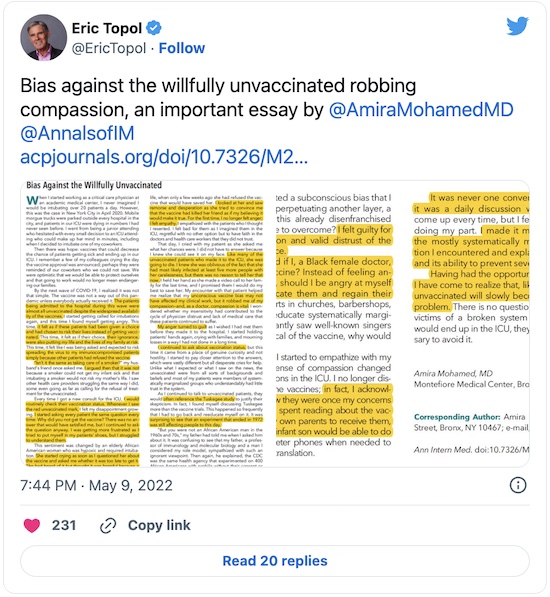Compassion for the Unvaccinated
Tagged:COVID
/
PharmaAndBiotech
/
Sadness
I have a hard time controlling my anger at the unvaccinated, the spreaders of disinformation, and the superstitious for prolonging the pandemic and killing people world-wide. Others, who are likely better people than me, have managed to find another way.
Anger at the unvaccinated
As we’ve written before on this Crummy Little Blog That Nobody Reads (CLBTNR), many of us vaccinated folk are angry at the unvaccinated. Some of that in the US is blue-vs-red political antagonism. Some of it is just contempt for deadly superstition. But a lot of it is because foot-dragging on vaccination is what prolongs the pandemic and causes variants to evolve in the susceptible population.
And I really don’t like being angry. I learned during the W administration that I shouldn’t be that angry all the time. I learned during the Trump administration that I couldn’t be that angry all the time.
But imagine what it’s like for health care workers, to see dying patients come in every day, angrily vaccine defiant (or even more so: remorseful, begging for the vaccine now that it’s too late).
It’s worse than caring for smokers: at least for smoking there’s nicotine addiction as an excuse, as well as the fact that smoking causes more personal health problems instead of public health problems.
A Compassionate Perspective, Sensitive to Minority Issues
So it is with an article today, which first came to our attention via Eric Topol:
 He points us to an article by Amira Mohammed in
Annals of Internal Medicine, published today. [1] It’s
very short, but every word is well-chosen and it’s well worth your time.
He points us to an article by Amira Mohammed in
Annals of Internal Medicine, published today. [1] It’s
very short, but every word is well-chosen and it’s well worth your time.
The article is short, but quite moving: she started out with tears of relief when the vaccines became available, moved on to anger at the willfully unvaccinated for endangering her and the entire community, and came eventually to a position of compassion for people who are the victims of disinformation, horribly bad education, and well-founded suspicion that the system does not work for minorities.
The Tuskeegee experiment, in which 400 black men were deliberately given syphilis without their knowledge or consent, treatment withheld, and studied as they slowly deteriorated and died over a period of 40 years (1932 - 1942). It was sponsored by the US Public Health Service, and the CDC. Unsurprisingly, there is very little trust and no respect at all in some minority communities for those institutions.
Initially Mohammed, a Black physician herself, was angry that people were refusing a clearly beneficial vaccine. Over time, her heart changed:
This sentiment was changed by an elderly African American woman who was hypoxic and required intubation. She started crying as soon as I questioned her about the vaccine and asked me whether it was too late to get it. She had heard of it but thought it was harmful because a distant friend had received it and died shortly afterward.
For the first time in a long time, I found myself disheartened by the response. Here she was, fighting for her life, when only a few weeks ago she had refused the vaccine that would have saved her. I looked at her and saw remorse and desperation as she tried to convince me that the vaccine had killed her friend as if my believing it would make it true. For the first time, I no longer felt anger; I felt empathy. I empathized with the patients who I thought I resented. I felt bad for them as I imagined them in the ICU, regretful with no other option but to have faith in the doctors and health care workers that they did not trust.
That day, I cried with my patient as she asked me what her chances were. I did not have to answer because I knew she could see it on my face. Like many of the unvaccinated patients who made it to the ICU, she was going to die. I knew she was oblivious of the fact that she had most likely infected at least five more people with her carelessness, but there was no reason to tell her that now. I held her hand as she made a video call to her family for the last time, and I promised them I would do my best to save her. My encounter with that patient helped me realize that my unconscious vaccine bias may not have affected my clinical work, but it robbed me of my compassion—and, as a doctor, compassion is vital. I wondered whether my insensitivity had contributed to the cycle of physician distrust and lack of medical care that these patients continued to suffer.
She realized that:
- Yes, people are ignorant. But why does the structural racism in our society keep them ignorant?
- Yes, people are victims of disinformation. But why do we tolerate disinformation, when the sources are clearly known?
- Yes, people are still distrustful because of the Tuskeegee experiment. But why do we refuse to take responsibility and blame for having done that experiment in the first place?
- Yes, people heard famous singers and athletes voice vaccine suspicions. But why were the rest of us not giving voice to the truth in “churches, barbershops, and grocery stores” to make sure they were exposed to the truth?
Yes, we have a strong bias against the willfully unvaccinated, and not entirely without reason. But: we need to guard against this becoming another pillar of racism, classism, and cultural prejudice. We do that with culturally sensitive outreach and education, so people can take care of themselves properly. Not taking the time to reach out to each community in a way they can understand and accept is in itself at least somewhat racist.
Part of Mohammed’s conclusion:
As my perspective shifted, I started to empathize with my patients again. My renewed sense of compassion changed my approach to family discussions in the ICU. I no longer dismissed their concerns about the vaccines; in fact, I acknowledged them and told them how they were once my concerns as well. I told them how long I spent reading about the vaccines, how I had convinced my own parents to receive them, and how I cannot wait until my infant son would be able to do so. I made sure to use interpreter phones when needed to ensure that nothing was lost in translation.
The Weekend Conclusion
I may not be able to get past my anger at the willfully unvaccinated. But I’m glad to see there are people in important healthcare positions like Amira Mohammed, who can.
Maybe some of her goodness will rub off on me someday.
Notes & References
1: A Mohammed, “Bias Against the Willfully Unvaccinated”, Ann Int Med, 2022-May-10. DOI: 10.7326/M22-0476. ↩


Gestae Commentaria
Comments for this post are closed pending repair of the comment system, but the Email/Twitter/Mastodon icons at page-top always work.